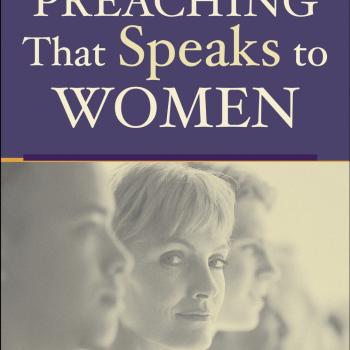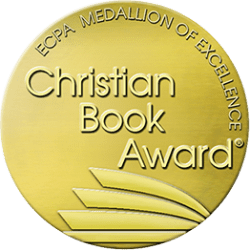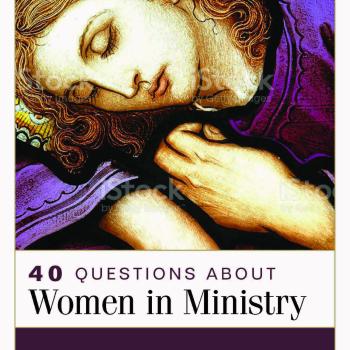As usual, it’s been a year of reading some really great books . . . and a few stinkers. Lucky for you I’m here to talk about the good ones.
The dominant genre of 2023 has been biblical studies, for two reasons: my DMin studies in New Testament lean that direction, which means I’m more interested in such topics, and because I have friends writing in that genre.
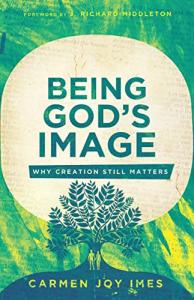
Dr. Carmen Imes, professor of Old Testament at Biola University and author of the acclaimed Bearing God’s Name, released her follow-up work this year. Being God’s Image explores the significance of humans created as—not in—the image of God. Every human, she argues, is innately identified as the image or icon of God on earth. It’s not something that can be lost or defaced but is inherent to our identity. Her excellent study of Genesis 1–3 is both academic and accessible. Carmen combines her scholarly expertise with good writing that makes this book a wonderful gift for anyone searching for what God has to say about their worth, purpose, and identity. IVP readers voted it as a finalist in the 2023 Readers’ Choice Awards and Englewood Books named it one of their top 15 theology books of the year.
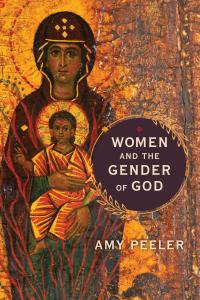
Technically this was released in late 2022, but I read it in January 2023. In Women and the Gender of God, Dr. Amy Peeler of Wheaton College offers a provocative yet wholly biblical view that the Incarnation (Christmas!) affirms God’s asexuality… The Trinitarian God is not male, though Jesus the second Person of the Godhead is a human male born of a woman alone. Mind-bending theories of the Trinity can leave us befuddled, but Dr. Peeler’s gift to the church offers clarity for both trinitarian studies and women who wonder if a male savior can truly save women (spoiler alert: he can!). A fairly academic read, but worth the time!
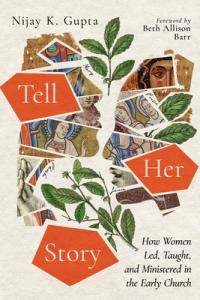 How often do you think about the Roman Empire? Dr. Nijay Gupta, professor at Northern Seminary, has thought about it a lot! In his new book, Tell Her Story, he shines a light on the many inspiring contributions of women to the first Christian churches. He explores the culture of first-century Rome and the lives of women within it, addressing common misconceptions. He then focuses on the women who led early churches as seen in New Testament writings. As readers get to know women like Phoebe, Priscilla, Junia, Nympha, and others, we see how women participated and led in the first house churches, and how they were welcomed by the men who also led. You won’t read Romans 16 the same after reading this book!
How often do you think about the Roman Empire? Dr. Nijay Gupta, professor at Northern Seminary, has thought about it a lot! In his new book, Tell Her Story, he shines a light on the many inspiring contributions of women to the first Christian churches. He explores the culture of first-century Rome and the lives of women within it, addressing common misconceptions. He then focuses on the women who led early churches as seen in New Testament writings. As readers get to know women like Phoebe, Priscilla, Junia, Nympha, and others, we see how women participated and led in the first house churches, and how they were welcomed by the men who also led. You won’t read Romans 16 the same after reading this book!
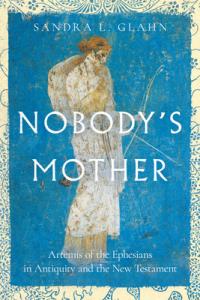
What does a Greek goddess have to do with Christian women? In Nobody’s Mother, Dr. Sandra Glahn offers a thorough investigation of Artemis, the goddess of Ephesus who held an outsized role in the life of the first-century Roman Empire. Glahn evaluates literature, inscriptions, biblical references, and art as she seeks to understand 1 Timothy 2:15, the “women shall be saved through childbearing…” verse that no one—until now—has been able to satisfactorily explain. Letting original sources reveal the nature of Artemis’s influence on the culture in which the earliest Christians lived, Glahn argues that Paul (the writer of 1 Timothy) was demonstrating how Jesus was better than Artemis. Her final chapter applies her findings to the biblical text and offers comfort to women who have felt sidelined by Paul’s apparent limitations. Y’all, it’s good. IVP readers voted it their favorite in the Arts & Humanities category, and it was a finalist in the Biblical Studies category for Christianity Today’s Books of the Year award.
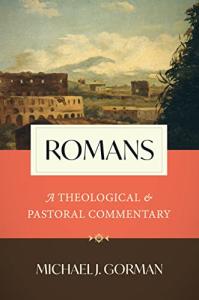 Pastors, preachers, and teachers will LOVE Michael Gorman’s new Romans: A Theological and Pastoral Commentary. I already reviewed it here on the blog, but a quick refresher:
Pastors, preachers, and teachers will LOVE Michael Gorman’s new Romans: A Theological and Pastoral Commentary. I already reviewed it here on the blog, but a quick refresher:
This particular commentary reflects Gorman’s perspective that the Bible points believers toward cruciformity, becoming like Christ. In Romans, he argues that, for the apostle Paul, the good news of Jesus Christ is meant for more than mere belief—it should result in a transformed life. The deep theology of chapters 1–11 motivates and empowers the cruciform, Spirit-led life in multicultural communities characterized by peace and justice. He organizes his material in accessible ways, using discussion questions and adding secondary resources for his readers. Anyone studying or teaching the book of Romans will find this commentary a significant help.
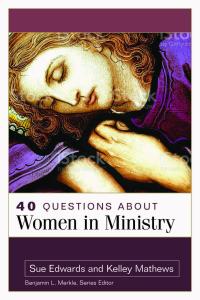
I certainly couldn’t pass up an opportunity to share my own book, which has proven to be a practical help to many already. In 40 Questions about Women in Ministry, Sue Edwards and I summarize the dominant teachings from both sides of the argument related to what the Bible says about women in leadership. Each chapter asks a question, and we articulate complementarian (hierarch) teaching on it along with the egalitarian (heterarch) conclusions. We do our best not to offer our own opinions as to which answer is the better one. Readers are allowed to see how scholars arrive at their conclusions and are equipped to study the issues for themselves. The book has been used by church staff and study groups, some of whom have been re-examining their stances on women’s participation in church. Though we do get into the theological weeds as necessary, we worked hard to make the content accessible to all levels of readers. If the topic of women in church (and home) has ever come up in your circles, chances are good you’ve been asking some of the 40 questions we address.



